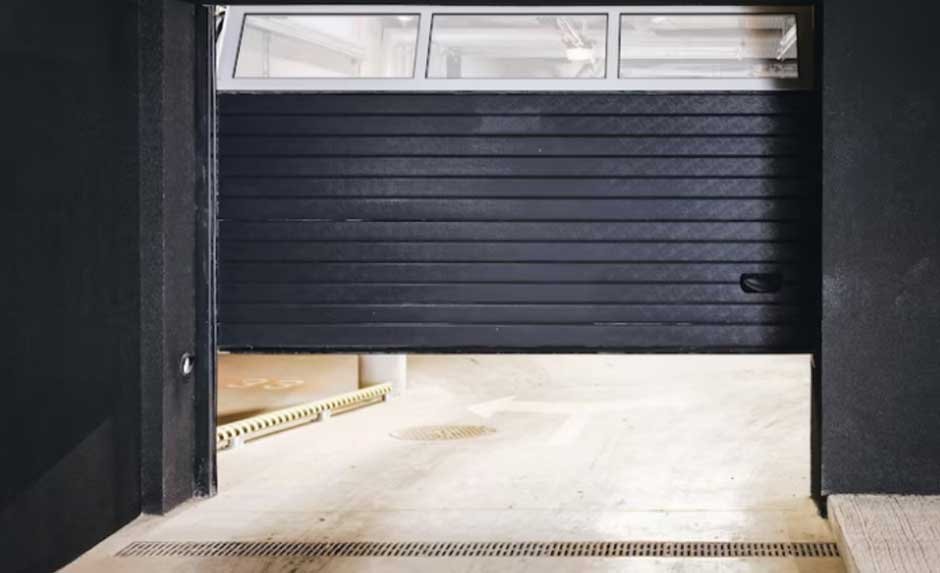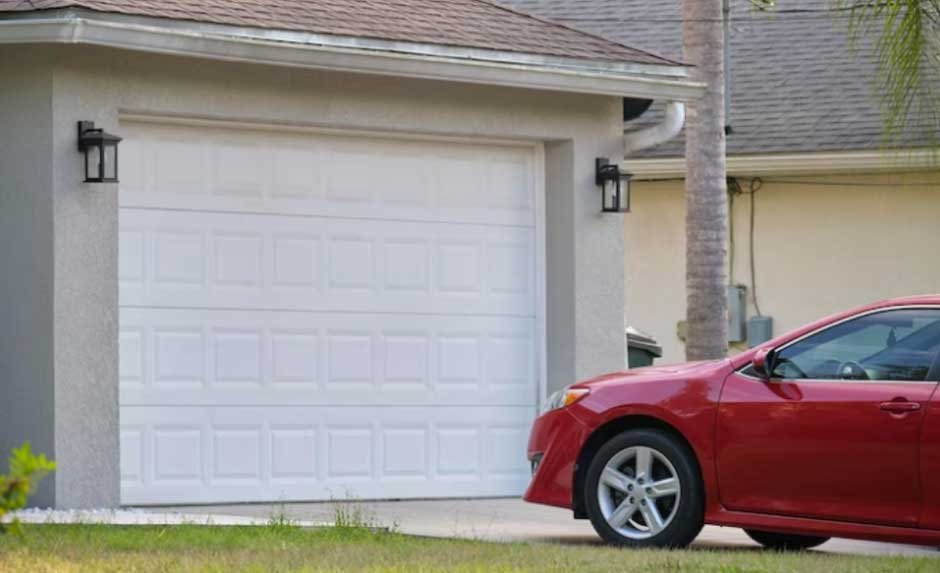Your garage door, though often taken for granted, plays a pivotal role in your daily life. It’s the sentinel that guards your belongings, shelters your vehicles, and welcomes you home. Yet, when it falters unexpectedly, it can disrupt your routine and introduce unwelcome inconveniences.
That’s where the importance of regular maintenance comes into play. Imagine a scenario where your garage door operates seamlessly, smoothly gliding open and closed with the push of a button. No unexpected hiccups, no costly repairs, just reliable functionality day in and day out.
The purpose of this article is simple but crucial: to guide homeowners on the significance of routine maintenance to prevent common garage door problems. We’ll delve into why maintaining your garage door should be a top priority, what might happen if you neglect it, and how taking preventive measures can save you not just money but also the hassle of dealing with unexpected issues.
Understanding the Importance of Maintenance
Regular maintenance is the unsung hero behind a well-functioning garage door:
Crucial for Longevity
- Routine maintenance isn’t just about keeping your door looking good; it’s about ensuring its longevity. Components that receive regular care tend to outlast those that are ignored.
Avoiding Costly Repairs
- Neglecting maintenance can lead to costly repairs down the road. A minor issue, if left unaddressed, can escalate into a major problem that empties your wallet.
Enhancing Safety
- Beyond financial savings, maintenance enhances safety. A well-maintained garage door is less likely to pose safety hazards, reducing the risk of accidents.
Saving Time and Money
- Think of maintenance as an investment in convenience. It saves you time and money in the long run by preventing unexpected inconveniences.
By the end of this article, you’ll have a clear understanding of why regular garage door maintenance should be an essential part of your homeowner’s routine.
Common Garage Door Problems
Common garage door problems can disrupt your daily routine and pose safety risks:
Worn-out Springs: Worn or damaged springs can lead to difficulty in lifting the door, causing inconvenience and potential safety hazards as the door may not stay open or closed as intended.
Damaged Rollers: Damaged or worn-out rollers can result in a noisy and uneven door movement, making your garage door operation less efficient and potentially causing further damage to other components.
Misaligned Tracks: Misaligned tracks can cause the door to jam, become off-balance, or even fall off the tracks, posing significant safety risks to anyone nearby.
Regular maintenance plays a pivotal role in preventing these problems. It ensures that components like springs, rollers, and tracks are inspected, lubricated, and adjusted as needed, reducing the chances of inconvenient and potentially hazardous issues.
The Components of Regular Maintenance
A comprehensive garage door maintenance routine involves several key components:
Lubrication: Regularly lubricating moving parts like rollers, hinges, and springs reduces friction, ensuring smooth and quiet operation.
Visual Inspections: Visual inspections help identify wear and tear on components, allowing you to address issues before they escalate.
Tightening of Hardware: Over time, nuts and bolts may loosen due to door movement. Tightening them ensures the door remains stable and safe.
It’s essential to follow the manufacturer’s guidelines for maintenance, as they can provide specific recommendations based on your garage door’s type and model. Following these guidelines ensures that maintenance tasks are performed correctly, maximizing their effectiveness.

DIY Maintenance Tips
Performing routine garage door maintenance yourself is feasible with the right knowledge and tools:
Lubrication: Use a high-quality garage door lubricant to apply a thin layer to moving parts. Focus on rollers, hinges, and springs, but avoid over-application, as excess lubricant can attract dirt.
Visual Inspections: Regularly inspect the springs, cables, rollers, and tracks for signs of wear, rust, or damage. Look for loose bolts or hardware.
Safety Precautions: Always disconnect power to the garage door opener before performing maintenance to prevent accidental door movement. Wear appropriate safety gear, including gloves and safety glasses, to protect yourself during the process.
By following these DIY maintenance tips and performing routine checks, you can keep your garage door in optimal condition, enhancing its longevity and preventing unexpected problems.
When to Call a Professional
While DIY maintenance can address many garage door issues, there are situations where professional assistance is necessary:
Complex Issues: If you encounter complex problems, such as issues with the garage door opener motor, significant spring damage, or structural issues with the door itself, DIY maintenance may not suffice. These issues often require specialized knowledge and tools.
Safety Concerns: If you feel uncomfortable or unsafe performing maintenance tasks, particularly when dealing with high-tension components like springs, it’s best to call a professional. Safety should always be the top priority.
Professional Maintenance: Professional maintenance goes beyond routine checks. Technicians have the expertise to diagnose and address potential problems before they become major issues. Regular professional maintenance can significantly contribute to the longevity and safety of your garage door system.
The Benefits of Regular Maintenance
In summary, regular garage door maintenance offers numerous benefits:
- Preventing Costly Repairs: By addressing minor issues before they escalate, routine maintenance prevents costly repairs, saving you money in the long run.
- Enhancing Safety: Well-maintained garage doors are less likely to pose safety hazards. You can trust that your door will operate as intended, reducing the risk of accidents.
- Prolonging Lifespan: Maintenance ensures that all components function optimally, extending the lifespan of your garage door system. This means fewer replacements and greater value.
- Peace of Mind: Perhaps most importantly, regular maintenance provides peace of mind. You can rest assured that your garage door is in good working condition, ready to serve you reliably day in and day out.
By understanding the importance of regular maintenance and incorporating it into your homeowner’s routine, you not only protect your investment but also ensure the continued functionality and safety of your garage door.
Frequently Asked Questions (FAQs) – Regular Garage Door Maintenance
1. How often should I perform maintenance on my garage door?
It’s recommended to perform routine maintenance checks every six months. However, factors like climate and usage frequency may influence the frequency of maintenance.
2. Can I perform maintenance on my garage door myself?
Many maintenance tasks can be done by homeowners, such as lubrication and visual inspections. However, safety precautions should be followed, and professional assistance should be sought for complex issues.
3. What should I look for during visual inspections?
During inspections, check for wear and tear on components like springs, cables, rollers, and tracks. Look for signs of rust or damage. Also, inspect for loose bolts or hardware.
4. Why is professional maintenance important?
Professional maintenance goes beyond routine checks. Technicians have the expertise to identify and address potential problems early, ensuring the longevity and safety of your garage door system.
5. Are there any specific manufacturer guidelines I should follow for maintenance?
Yes, it’s essential to follow the manufacturer’s guidelines for maintenance, as they can provide specific recommendations based on your garage door’s type and model.
6. What are the benefits of regular garage door maintenance?
Regular maintenance prevents costly repairs, enhances safety, prolongs the door’s lifespan, and provides peace of mind by ensuring your garage door is in good working condition.
7. When should I call a professional for maintenance or repairs?
Call a professional if you encounter complex issues, feel uncomfortable or unsafe performing maintenance tasks, or if you’re unsure about the severity of a problem. Safety should always be the top priority.

